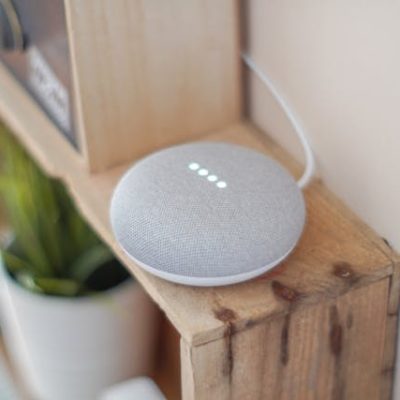If you have your official work e-mail on your mobile phone is a good idea to turn the extra security. Mobile security has never been more important. More and more of your life is stored digitally in your pocket and you’re lucky you have an employer who allows the use of private phones at work.
It is often seen that malicious applications in the app store and online got into the mobile phone. Here you can get some simple tips on how to best secure your information safe.
If you lose your phone, the risk is relatively high for the content or accounts are abused, which is bad enough in itself. Software you install may also mean that your information will be used over time. Via the Internet can be equally unauthorized access on your phone that you own.
Access code is a safer solution than locking both pattern and facial recognition.
1. Use the Access Code
You can unlock almost all newer phones with a special code that must be entered after screen lock has gone on. Some handsets also support unlocking pattern or face.
Using a numerical code is the safest way to ensure that unauthorized persons cannot get into the phone. Both face recognition and pattern has major drawbacks. The pattern is usually left behind greasy traces on the screen and face detection can usually be tricked with a single photograph of the owner.
You’ll want to enable the detection if your phone supports it.
2. Enable Tracking
Many of today’s mobile phones have software for tracking and remote wipe via the Internet. Typically these functions are not enabled from the start, thus you need to turn this security itself.
he process is usually simple and takes place in one of two ways. Whether you use an account you already have the manufacturer’s services, or register with e-mail and password. You can then lock or track your mobile online. If you do not believe that the phone can get to the right again, you can usually delete the content as well.
Be aware that not all locking features are equally safe. If the information you have stored is critical enough, consider the removal should be your first and only action when the mobile has evaporated.
An added bonus is that these services often have a number of new features, such as quick and easy access to call records and text messages via the Internet.
3. Be Careful with Apps
Still the general rule is that the content of app stores is safe. The proportion of malware increases, however, and it is wise to make a little extra on what you install on your phone especially if you have important information on it.
If you retrieve the known software or apps you know from other platforms, you should ensure that both the name of the app and the developer’s right. Using the name of the other developer’s applications is a very common technique for developers with contaminated flour in the bag.
If the application store stating what rights needs an app you should also take a closer look. If an app requires a remarkable amount of information from you, it may be danger ahead. If a single game requires access to phone logs or other sensitive information, it might do well to steer clear.
It can be difficult to be completely sure which apps are legitimate. Common sense and a second review before you press the install button is probably enough to keep you out of trouble in most cases.
4. Be Careful with Attachments
E-mail attachments can hide malicious software, whether you work in front of a PC or a cell phone. Therefore it is wise to be alert as soon as you receive an e-mail attachment from someone you do not know. Many e-mail clients preview some of the contents of the e-mail without having to open the email. This can tell you if you at all need e-mail before you delete it.
If you think we are talking about something scary, or just spam, it may be wise not to open e-mail at all until you delete it. In addition to the attachment can actually e-mails contain code that, at worst exploit security holes in your e-mail reader. Common and relatively harmless junk mail can also use this code to verify that your e-mail address is used. Thus, you risk getting even more spam without having done anything other than opening the message. When you unlock a phone, add your safety in someone else’s hands.
5. Do Not Root / Jailbreak
To unlock your phone using the so-called rooting or jailbreaking can give you new opportunities. It is important to remember that software to help you with this comes from someone other than the phone manufacturer.
Since so unlocking is to take full control of phone functions, the tools also easily take full control over your content. Any evasions into your phone can remain in the foreseeable future after you have done the unlocking.
Many business solutions provide the ability to check whether your phone is unlocked in this way. Therefore, you may not access the company’s internal systems such as e-mail and file servers with an unlocked phone.
6. Know Where is Your Mobile Phone
Many do not have mobile of sight for a shorter or longer periods, only to spend time to look it up again afterwards. The time it takes to look up a cell phone can be very useful time for unauthorized persons who may have gained access to it.
This tip may seem trite – but this time your phone is in your pocket or in your field of vision is the time unauthorized persons can use to copy the information.
Remember that what you store on the memory card is often not as secure as it is on your phone.
7. Make Sure the Memory Card
Your phone and memory card often have independent safety features. Even if you lock down your phone, it is often possible for unauthorized persons to remove the memory card to access information.
Some phones have built-in solutions for securing card – then typically the encryption of the content, making it unreadable in other units or require a code for unlocking. Do not have such a feature of your phone; there are apps that can help you. Another option is to be selective with what you save on your phone and what you store on the memory card.
8. Be Careful What You Store
Many people avoid ensuring his mobile enough because it seems impractical to spend time on a code every time the phone is opened. If you do not have critical information on your mobile you can get by fine without the lock solutions. There are apps that can help you with security. Also, When sending and receiving confidential documents pls make sure you use electronic signature in your documents so that both sender and receiver stay safe.
In such cases it may be convenient to consider online storage for your most critical information. Solutions such as Dropbox and Evernote allow you to save files and notes elsewhere than in the mobile’s memory. As long as your password is stored on the mobile, unauthorized access to the content even if it is on the internet. If you use these solutions, it is extremely important to change your password once you find that your phone is gone.
9. Security Software
More and more security is built into modern Smartphones, but it is not all that has a complete set of tools built. For these phones, it may be necessary to install security solutions from other vendors.
Almost all antivirus companies have software for mobile phones. This software solves usually much more than just any virus problems. Tracking and remote deletion of content on your phone is among the most important of these. Some vendors also provide telephone licenses in the family their packages. Thus it can be nice to check what kind of solutions offered by the software you use on your home PC






1 Comment
Comments are closed.